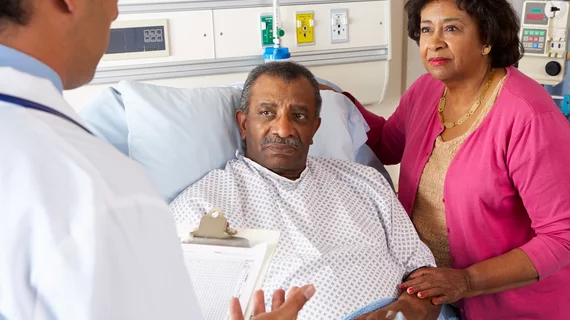TMVR safe and effective for kidney transplant recipients
Transcatheter mitral valve repair (TMVR) is safe and effective for patients who have undergone a kidney transplant, according to new findings published in the American Journal of Cardiology.
The study’s authors tracked data from nearly 23,000 who underwent TMVR with the MitraClip device. A total of 122 of those patients had a history of renal transplant. All procedures occurred from 2014 to 2018. The median patient age was 70 years old for the renal transplant group and 80 years old for the other TMVR patients. Also, the authors noted, diabetes and hypertension were much more likely among patients in the renal transplant group.
Overall, there were “no significant differences in in-hospital mortality” between patients who did and did not present with a history of renal transplant. In fact, almost all patient outcomes—including the rate of 30-day heart failure hospitalizations and total length of stay—were comparable across the board.
One difference, however, was that acute kidney injury (AKI) was more likely among the patients with a history of renal transplant. The authors attributed this difference to several factors, including a “decreased renal reserve due to decreased overall nephron mass” and the fact that many transplant recipients were likely on calcineurin inhibitors immunosuppressant therapy prior to undergoing TMVR.
“It is well established that AKI is associated with increased long-term mortality following MitraClip,” wrote lead author Agam Bansal, MD, a cardiovascular specialist at the Cleveland Clinic, and colleagues. “Therefore, it is important to recognize increased susceptibility to AKI amongst kidney transplant recipients and efforts should be exercised in minimizing its occurrence.”
Bansal et al. did write that their research had certain limitations, such as its retrospective nature.
Click here for the team’s full analysis.

